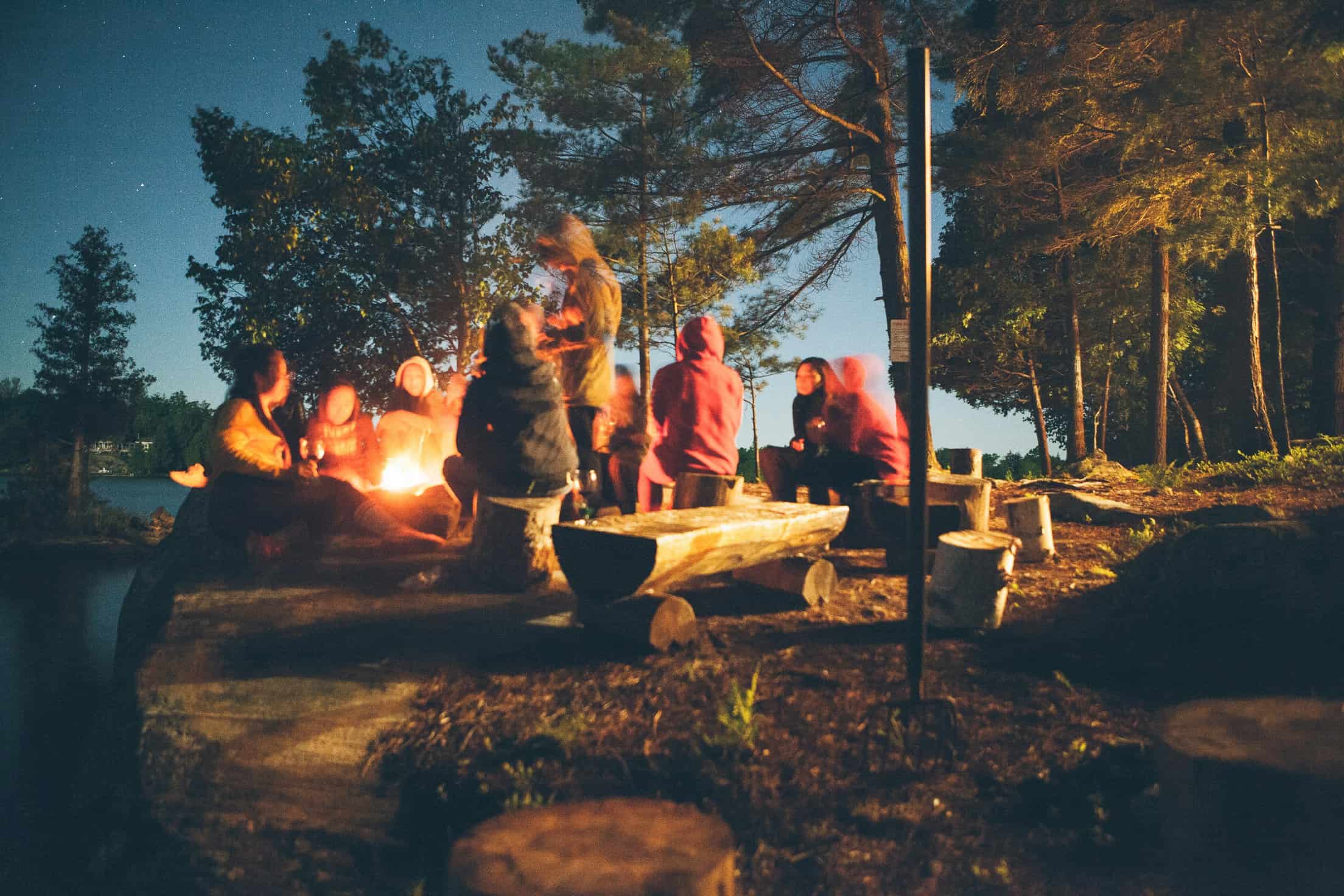
Être "en plein air" dans un nouveau pays : associations des immigrants entre les activités récréatives de plein air et la satisfaction de l'établissement au Canada
Nous remercions le Dr Ulises Charles Rodriguez, associé postdoctoral à l'Université de Calgary, et le Dr Richard Larouche, professeur associé de santé publique à l'Université de Lethbridge, d'avoir fourni ce poste.
Les dernières décennies ont été marquées par une augmentation des migrations mondiales, des millions de personnes traversant les frontières à la recherche d'un refuge, de meilleures opportunités ou d'un niveau de vie plus élevé. En 2020, les Nations unies ont recensé plus de 281 millions de migrants internationaux(Organisation internationale pour les migrations, 2022), soit une population près de sept fois supérieure à celle du Canada. Le Canada lui-même a accueilli plus de 400 000 immigrants pour la seule année 2021(Statistique Canada, 2022). Cette poussée migratoire ne remodèle pas seulement la composition démographique du pays, mais souligne également la nécessité de se pencher sur l'intégration et l'adaptation des immigrants à leur arrivée au Canada.
Si l'immigration alimente la croissance démographique, elle pose des défis uniques, notamment en ce qui concerne la santé mentale et le bien-être des nouveaux arrivants(Newbold, 2009). Bien que la santé physique des immigrants soit généralement meilleure que celle des personnes nées au Canada, les études indiquent un déclin notable de la santé mentale des nouveaux arrivants après leur arrivée(Ng, 2011). De plus, les réfugiés et les immigrants insatisfaits de leur établissement courent un risque accru d'éprouver des problèmes de santé émotionnelle et mentale(Robert et Gilkinson, 2012). Conscients de ces défis, certains chercheurs et décideurs politiques ont exploré les loisirs de plein air comme facilitateur potentiel de l'adaptation et du bien-être des immigrants. Cependant, les études antérieures examinant les avantages des loisirs de plein air pour l'adaptation des immigrants reposaient sur de petits échantillons et des recherches qualitatives, ce qui limite notre capacité à généraliser les résultats à la population canadienne.
Des données nationales pour mieux comprendre la situation
Une étude récemment publiée(Charles-Rodriguez & Larouche, 2024) a analysé les données de l'Enquête sociale générale, une enquête nationale menée tous les cinq ans par Statistique Canada. L'enquête comprenait un échantillon diversifié de plus de 15 000 personnes âgées de 15 ans et plus provenant de toutes les provinces canadiennes. Nous avons examiné la participation à 12 activités de plein air incluses dans l'enquête afin d'explorer la relation entre les loisirs de plein air et la satisfaction à l'égard de l'établissement au Canada.
Il n'est pas surprenant que les Canadiens aiment les aventures en plein air, mais ce qui est intriguant, c'est l'écart constaté entre la façon dont les immigrants et les non-immigrants s'adonnent aux loisirs de plein air. Les participants nés au Canada s'adonnent à des activités récréatives de plein air beaucoup plus diversifiées que les immigrants. Cette constatation s'applique à toutes les caractéristiques des immigrants, y compris le temps écoulé depuis l'immigration et le programme de migration (p. ex. immigrants économiques, immigrants au titre du regroupement familial et réfugiés).
En y regardant de plus près, les auteurs ont observé quelques nuances et inégalités basées sur la démographie. Par exemple, les hommes participent généralement à un plus grand nombre d'activités de plein air que les femmes, qu'ils soient immigrés ou non. De même, les immigrants économiques ont participé à davantage d'activités de plein air que les réfugiés et les immigrants au titre du regroupement familial. Ces résultats sont cohérents avec d'autres études faisant état de multiples obstacles susceptibles de limiter l'engagement des nouveaux arrivants dans les activités de plein air (Blye, 2024 (thèse de doctorat non publiée), Charles-Rodriguez et al., 2022).
Le résultat le plus intéressant est que les immigrants qui pratiquent davantage d'activités de plein air déclarent avoir un meilleur sentiment d'appartenance et de satisfaction à l'égard de la vie au Canada.
Nous avons également constaté que les immigrants plus récents étaient plus satisfaits de leur établissement que ceux qui avaient émigré il y a longtemps, ce qui suggère que la satisfaction à l'égard de l'établissement peut diminuer avec le temps. Toutefois, cela n'est pas vrai pour tous. Les immigrants moins récents qui ont participé à un plus grand nombre d'activités de loisirs en plein air ont montré une satisfaction similaire à celle des immigrants arrivés récemment, ce qui suggère que les loisirs en plein air pourraient être un élément clé de la satisfaction durable à l'égard de l'établissement.
Quelle est donc la principale leçon à tirer de cette expérience ?
En d'autres termes, s'immerger dans des activités de plein air pourrait être l'ingrédient manquant dans la recette de l'installation des immigrants.
Passer à l'action : Favoriser le bien-être des immigrés grâce aux loisirs de plein air
Cette étude présente les premières preuves basées sur la population suggérant que la pratique de loisirs en plein air peut agir comme une barrière protectrice contre la diminution de la satisfaction à l'égard de l'environnement local au fil du temps. Des études qualitatives antérieures ont mis en évidence le fait que les activités de loisirs en plein air constituent des espaces précieux pour la socialisation avec les amis et la famille, l'expression de l'identité culturelle et l'entretien d'un sentiment de lieu et d'appartenance(Charles-Rodriguez et al., 2022). Avec des données plus solides et plus représentatives, nous pouvons mieux informer les initiatives de programmation actuelles et futures visant à améliorer le bien-être des immigrants par le biais des loisirs de plein air.
Toutefois, il est essentiel de reconnaître que les avantages des activités de plein air ne sont pas universels. Si de nombreux immigrants trouvent dans la nature un réconfort et un lien, certains peuvent éprouver des sentiments de nostalgie, de déconnexion culturelle ou de déracinement(Charles-Rodriguez et al., 2022). Par conséquent, tout programme de plein air axé sur les communautés immigrées doit être conçu avec soin, en tenant compte des préférences et des besoins divers. Les programmes doivent prendre en compte les multiples obstacles auxquels sont confrontés les immigrants, tels que les barrières linguistiques, le manque de moyens de transport, la discrimination et la connaissance limitée des possibilités de loisirs locales.
La collaboration avec les communautés immigrées est primordiale pour développer des initiatives de loisirs en plein air efficaces et inclusives. Au niveau local, les agences locales d'établissement et de loisirs, les organisations ethniques et les défenseurs des activités de plein air peuvent unir leurs forces pour faciliter l'accès aux activités de plein air, promouvoir la sensibilisation et soutenir les efforts de fidélisation des populations immigrées et diverses. Entre-temps, les décideurs ont un rôle essentiel à jouer dans la mise en œuvre de politiques et de programmes de soutien aux différents niveaux de gouvernement. Des initiatives telles que le programme "Nature as Second Language" de l'Alberta ou "Learn to camp" au niveau national, sont des exemples du type de mesures proactives qui peuvent favoriser l'intégration et le bien-être des immigrants par le biais des loisirs de plein air.
À l'avenir, l'élargissement de la portée de ces interventions et l'amélioration des efforts de marketing pourraient amplifier leur impact, en veillant à ce que tous les immigrants, indépendamment de leurs antécédents ou de leur situation, aient la possibilité de profiter des avantages d'une connexion avec la nature dans leur nouveau pays. Ce faisant, tous les Canadiens pourront bénéficier d'un secteur des loisirs de plein air plus diversifié, plus inclusif et plus dynamique.
Références
Blye, CJ (2024). Exploration de la diversité ethnoculturelle dans les parcs canadiens : Perceptions and Experiences of New Canadians [Thèse de doctorat non publiée]. Faculté de kinésiologie, de sport et de loisirs, Université de l'Alberta.
Charles-Rodriguez, U., Venegas De La Torre, M. D. L. P., Hecker, V., Laing, R. A., & Larouche, R. (2022). La relation entre la nature et l'intégration, le bien-être et l'activité physique des immigrants : A scoping review. Journal of Immigrant and Minority Health, 25(1), 190-218. https://doi.org/10.1007/s10903-022-01339-3
Charles-Rodriguez, U., Larouche, R., 2024. Being "outdoors" in a new country : associations between immigrant characteristics, outdoor recreation activities, and settlement satisfaction in Canada. Leisure Studies 1-15. https://doi.org/10.1080/02614367.2024.2328087
Organisation internationale pour les migrations. (2022, 7 décembre). Rapport sur les migrations mondiales 2022. https://worldmigrationreport.iom.int/wmr-2022-interactive/
Newbold, B. (2009). La santé à court terme des nouveaux immigrants au Canada : Evidence from LSIC. Ethnicity & Health, 14(3), 315-336. https://doi.org/10.1080/13557850802609956
Ng, E. (2011). L'effet de l'immigrant en bonne santé et les taux de mortalité. Rapports sur la santé, 22(4), 25. https://www150.statcan.gc.ca/n1/pub/82-003-x/2011004/article/11588-eng.htm
Robert, A.-M. et Gilkinson, T. (2012). Santé mentale et bien-être des immigrants récents au Canada : Données de l'Enquête longitudinale auprès des immigrants du Canada (ELIC). Consulté le 7 décembre 2022 à l'adresse suivante : https://www.canada.ca/en/immigration-refugees-citizenship/corporate/reports-statistics/research/mental-health-well-being-recent-immigrants-canada-evidence-longitudinal-survey-immigrants-canada-lsic.html

